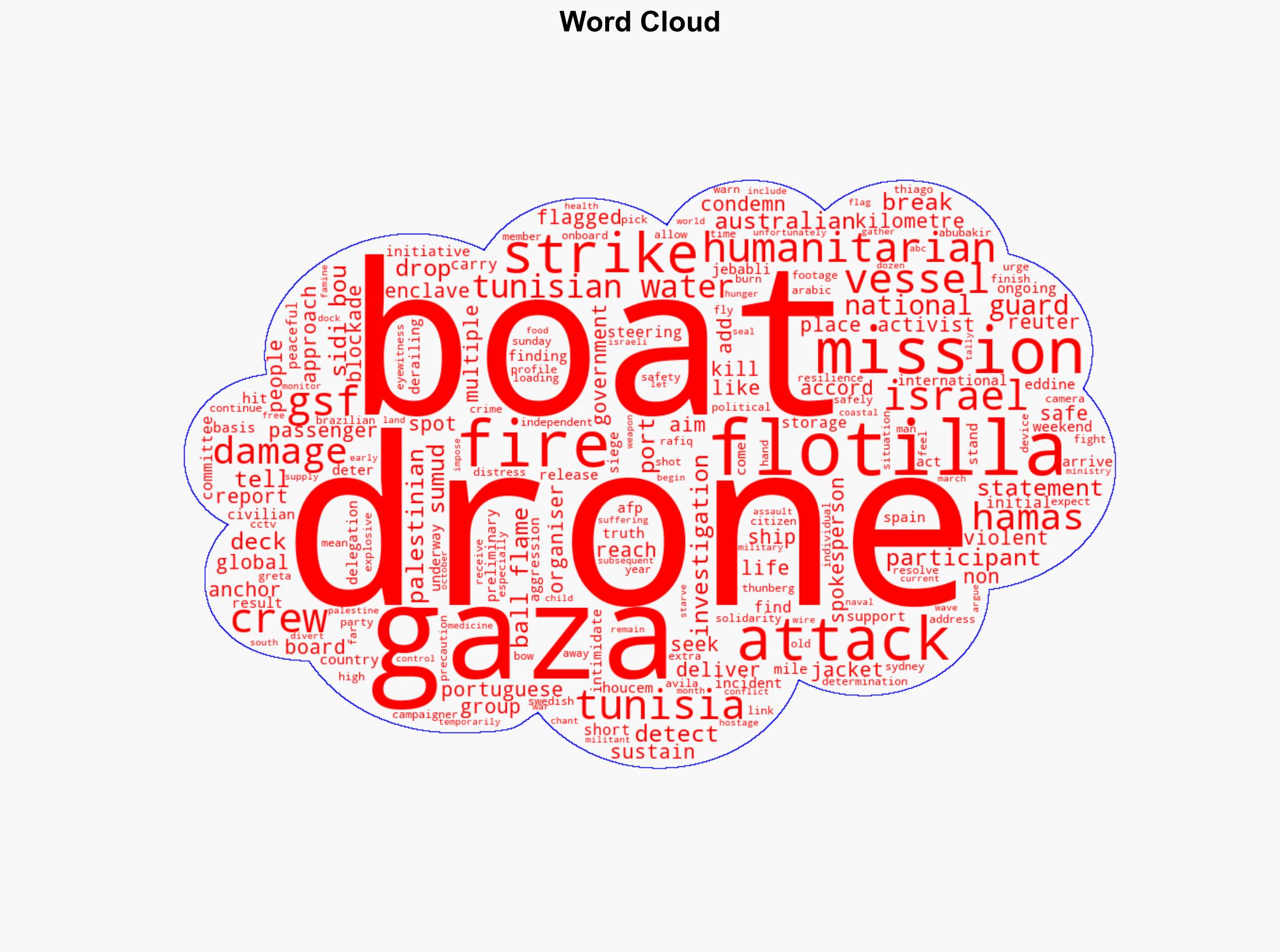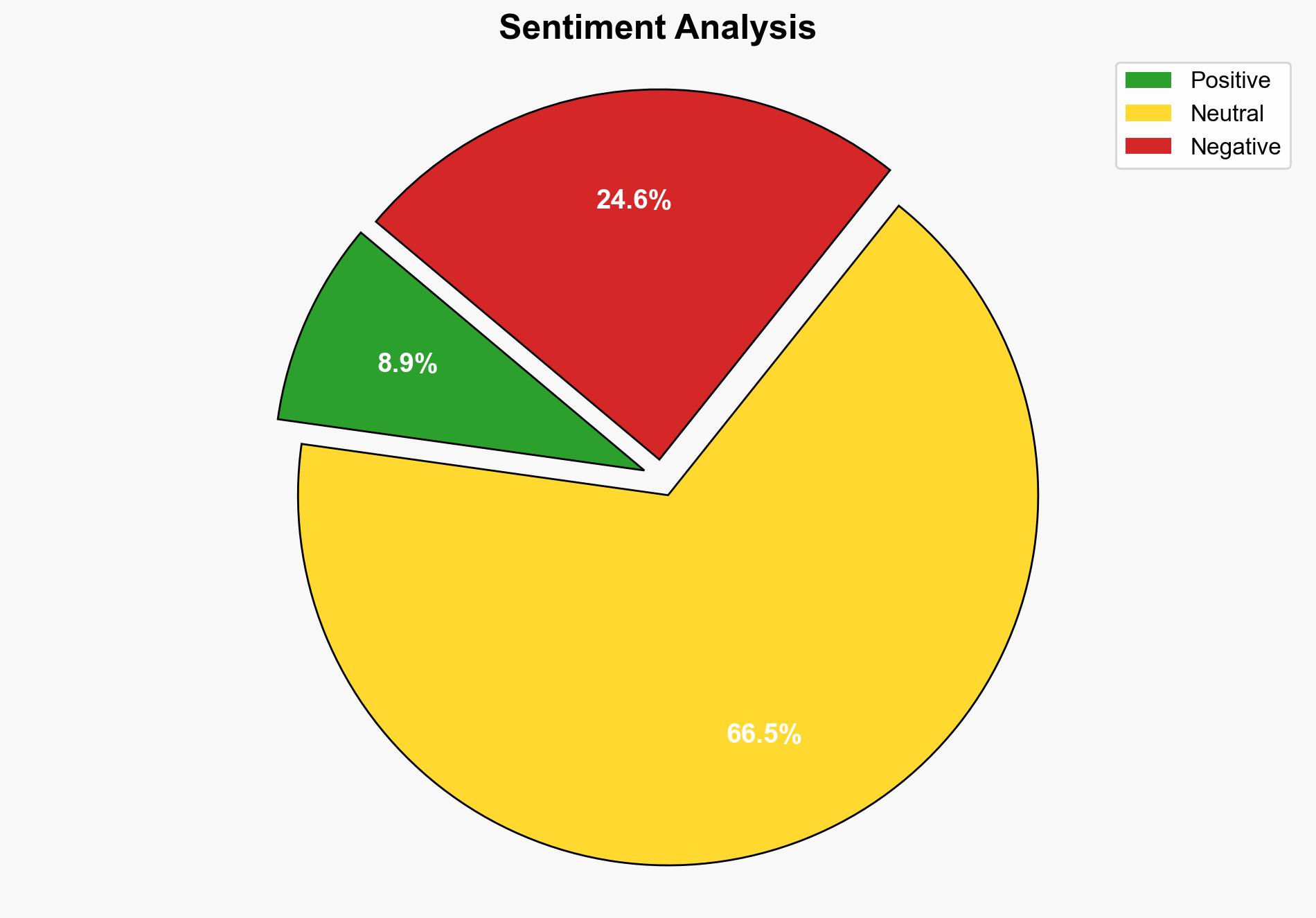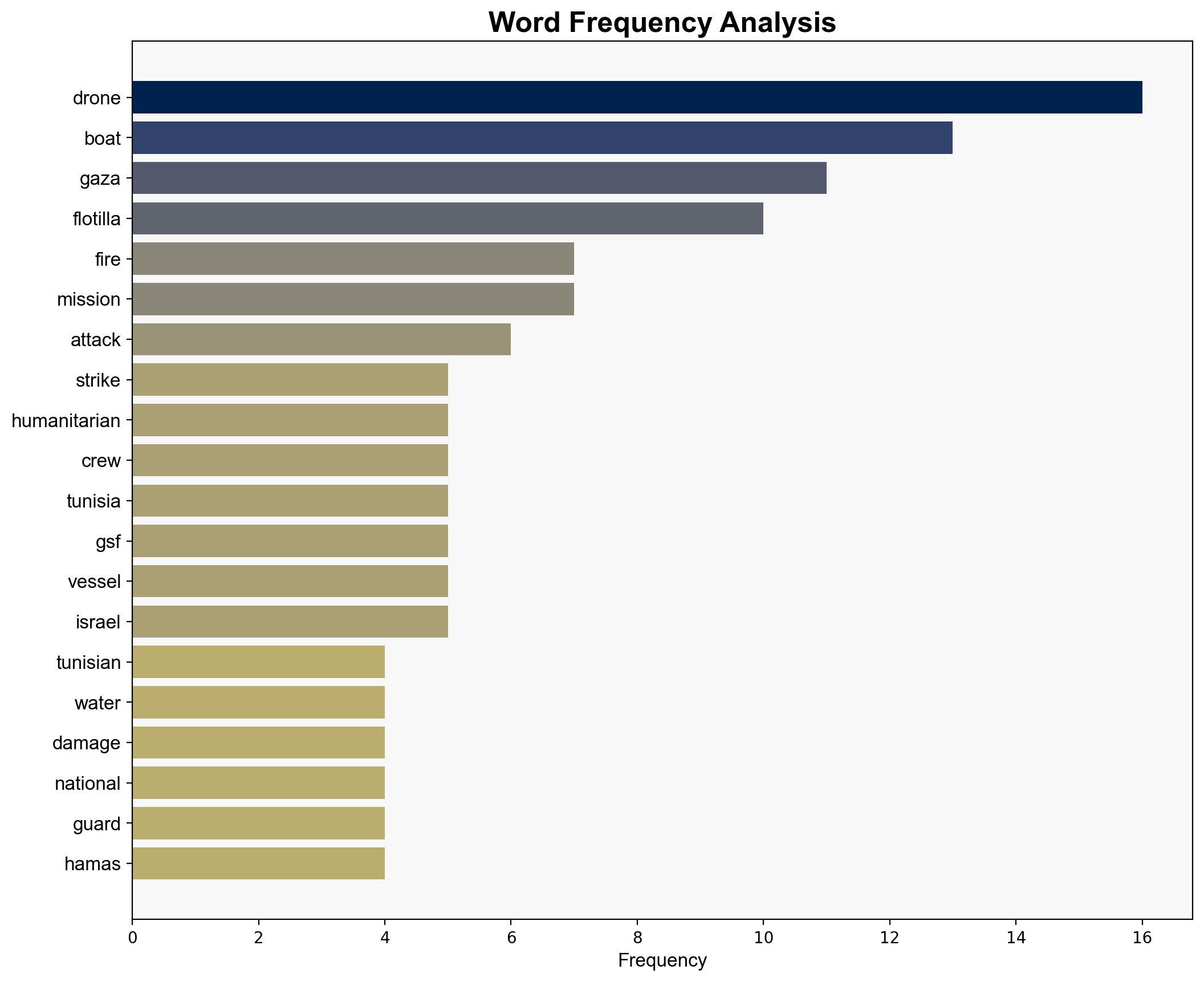Flotilla for Gaza says boat struck by drone in Tunisian waters – ABC News (AU)
Published on: 2025-09-09
Intelligence Report: Flotilla for Gaza says boat struck by drone in Tunisian waters – ABC News (AU)
1. BLUF (Bottom Line Up Front)
The incident involving the flotilla for Gaza, reportedly struck by a drone in Tunisian waters, presents two primary hypotheses: a deliberate attack to intimidate and derail the humanitarian mission, or an accidental fire unrelated to external aggression. The hypothesis of a deliberate attack is moderately supported by eyewitness accounts and video evidence, though confirmation is pending further investigation. Given the geopolitical sensitivity, a cautious approach is recommended, with a confidence level of moderate in the deliberate attack hypothesis. Strategic action should focus on diplomatic engagement to ensure safe passage for humanitarian missions and to prevent escalation.
2. Competing Hypotheses
1. **Deliberate Attack Hypothesis**: The flotilla was intentionally targeted by a drone to intimidate and disrupt its mission to deliver humanitarian aid to Gaza. This is supported by eyewitness reports and video evidence of a drone dropping an incendiary device.
2. **Accidental Fire Hypothesis**: The fire was caused by an internal malfunction or accident, such as a fire breaking out from life jackets, with no external aggression involved. The presence of a drone may be coincidental or unrelated to the fire.
3. Key Assumptions and Red Flags
– **Assumptions**: The deliberate attack hypothesis assumes the drone was operated with hostile intent and that the video evidence is authentic and accurately interpreted. The accidental fire hypothesis assumes no external interference and that the fire could originate internally without external provocation.
– **Red Flags**: The lack of conclusive evidence linking the drone to the fire, potential biases in eyewitness accounts, and the absence of clear identification of the drone operator are significant red flags.
– **Inconsistent Data**: Conflicting reports on the cause of the fire and the role of the drone highlight gaps in the intelligence.
4. Implications and Strategic Risks
– **Geopolitical Risks**: If the attack is confirmed, it could escalate tensions in the region, particularly affecting relations between Israel, Tunisia, and other involved nations.
– **Psychological Impact**: The incident may deter future humanitarian missions, impacting aid delivery to Gaza.
– **Potential Escalation**: Misinterpretation or misrepresentation of the event could lead to retaliatory actions or increased military presence in the region.
5. Recommendations and Outlook
- Engage in diplomatic dialogue with involved nations to clarify the incident and ensure the safety of future humanitarian missions.
- Enhance surveillance and monitoring of maritime routes to prevent similar incidents.
- Scenario Projections:
- **Best Case**: The incident is confirmed as an accident, and diplomatic efforts ensure safe passage for future missions.
- **Worst Case**: Confirmation of a deliberate attack leads to regional escalation and increased hostilities.
- **Most Likely**: Continued investigation provides clarity, leading to diplomatic resolutions without significant escalation.
6. Key Individuals and Entities
– Greta Thunberg: Swedish activist involved in the flotilla.
– Abubakir Rafiq: Australian participant in the flotilla.
– Thiago Avila: Brazilian activist and Global Sumud Flotilla member.
– Houcem Eddine Jebabli: Spokesperson for the Tunisian National Guard.
7. Thematic Tags
national security threats, cybersecurity, counter-terrorism, regional focus




